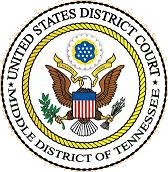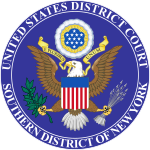The Communications Decency Act of 1996 (CDA) was the United States Congress's first notable attempt to regulate pornographic material on the Internet. In the 1997 landmark case Reno v. ACLU, the United States Supreme Court unanimously struck the act's anti-indecency provisions.

Carafano v. Metrosplash.com, Inc., 339 F.3d 1119, is an American legal case dealing with the protection provided an internet service provider under the Communications Decency Act (CDA) United States Code Title 47 section 230(c)(1). It is also known as the Star Trek actress case as the plaintiff, Chase Masterson – whose legal name is Christianne Carafano – is well known for having appeared on Star Trek: Deep Space Nine. The case demonstrated that the use of an online form with some multiple choice selections does not override the protections against liability for the actions of users or anonymous members of a Web-based service.
Online service provider law is a summary and case law tracking page for laws, legal decisions and issues relating to online service providers (OSPs), like the Wikipedia and Internet service providers, from the viewpoint of an OSP considering its liability and customer service issues. See Cyber law for broader coverage of the law of cyberspace.

Stratton Oakmont, Inc. v. Prodigy Services Co., 23 Media L. Rep. 1794, is a 1995 decision of the New York Supreme Court holding that online service providers can be liable for the speech of their users. The ruling caused controversy among early supporters of the Internet, including some lawmakers, leading to the passage of Section 230 of the Communications Decency Act in 1996.
Trespass to chattels is a tort whereby the infringing party has intentionally interfered with another person's lawful possession of a chattel. The interference can be any physical contact with the chattel in a quantifiable way, or any dispossession of the chattel. As opposed to the greater wrong of conversion, trespass to chattels is argued to be actionable per se.

Zeran v. America Online, Inc., 129 F.3d 327, cert. denied, 524 U.S. 937 (1998), is a case in which the United States Court of Appeals for the Fourth Circuit determined the immunity of Internet service providers for wrongs committed by their users under Section 230 of the Communications Decency Act (CDA). Section 230(c)(1) of the CDA provides that "No provider or user of an interactive computer service shall be treated as the publisher or speaker of any information provided by another information content provider."
Barrett v. Rosenthal, 40 Cal.4th 33 (2006), was a California Supreme Court case concerning online defamation. The case resolved a defamation claim brought by Stephen Barrett, Terry Polevoy, and attorney Christopher Grell against Ilena Rosenthal and several others. Barrett and others alleged that the defendants had republished libelous information about them on the internet. In a unanimous decision, the court held that Rosenthal was a "user of interactive computer services" and therefore immune from liability under Section 230 of the Communications Decency Act.
A person who is found to have published a defamatory statement may evoke a defence of innocent dissemination, which absolves them of liability provided that they had no knowledge of the defamatory nature of the statement, and that their failure to detect the defamatory content was not due to negligence. The defence, sometimes also known as "mechanical distributor", is of concern to Internet Service Providers because of their potential liability for defamatory material posted by their subscribers.

Lunney v. Prodigy Services Co., 94 N.Y.2d 242 (1999) is a leading U.S. law case on liability of internet service providers for defamation. The court held that Prodigy, an internet chatroom provider, was not considered a publisher of defamatory material posted from an imposter account due to its passive role in monitoring the chatrooms.
The origins of the United States' defamation laws pre-date the American Revolution; one influential case in 1734 involved John Peter Zenger and established precedent that "The Truth" is an absolute defense against charges of libel. Though the First Amendment of the U.S. Constitution was designed to protect freedom of the press, for most of the history of the United States, the U.S. Supreme Court failed to use it to rule on libel cases. This left libel laws, based upon the traditional "Common Law" of defamation inherited from the English legal system, mixed across the states. The 1964 case New York Times Co. v. Sullivan, however, radically changed the nature of libel law in the United States by establishing that public officials could win a suit for libel only when they could prove the media outlet in question knew either that the information was wholly and patently false or that it was published "with reckless disregard of whether it was false or not". Later Supreme Court cases barred strict liability for libel and forbade libel claims for statements that are so ridiculous as to be obviously facetious. Recent cases have added precedent on defamation law and the Internet.

Section 230 is a section of Title 47 of the United States Code that was enacted as part of the Communications Decency Act of 1996, which is Title V of the Telecommunications Act of 1996, and generally provides immunity for online computer services with respect to third-party content generated by its users. At its core, Section 230(c)(1) provides immunity from liability for providers and users of an "interactive computer service" who publish information provided by third-party users:
No provider or user of an interactive computer service shall be treated as the publisher or speaker of any information provided by another information content provider.

Goddard v. Google, Inc., 640 F. Supp. 2d 1193, is a case in which Jenna Goddard ("Plaintiff") alleged that she and a class of similarly situated individuals were harmed by Google ("Defendant") as a result of clicking allegedly fraudulent web-based advertisements for mobile subscription services ("MSSPs"). The United States District Court for the Northern District of California held that the action was barred by Section 230 of the Communications Decency Act ("CDA") and dismissed the complaint without leave to amend.
In Milgram v. Orbitz Worldwide, LLC, the New Jersey Superior Court held that online ticket resellers qualified for immunity under Section 230 of the Communications Decency Act (CDA), and that such immunity preempted a state law consumer fraud statute. The opinion clarified the court's test for determining whether a defendant is acting as a publisher, the applicability of the CDA to e-commerce sites, and the extent of control that an online intermediary may exercise over user content without becoming an "information content provider" under the CDA. The opinion was hailed by one observer as a "rare defeat for a consumer protection agency" and the "biggest defense win of the year" in CDA § 230 litigation.

Barnes v. Yahoo!, Inc., 570 F.3d 1096, is a United States Court of Appeals for the Ninth Circuit case in which the Ninth Circuit held that Section 230 of the Communications Decency Act (CDA) rules that Yahoo!, Inc., as an Internet service provider cannot be held responsible for failure to remove objectionable content posted to their website by a third party. Plaintiff Cecilia Barnes made claims arising out of Defendant Yahoo!, Inc.'s alleged failure to honor promises to remove offensive content about the plaintiff posted by a third party. The content consisted of a personal profile with nude photos of the Plaintiff and her contact information. The United States District Court for the District of Oregon had dismissed Barnes' complaint.

Fair Housing Council of San Fernando Valley v. Roommates.com, LLC, 521 F.3d 1157, is a case in which the United States Court of Appeals for the Ninth Circuit, sitting en banc, held that immunity under Section 230 of the Communications Decency Act (CDA) did not apply to an interactive online operator whose questionnaire violated the Fair Housing Act. However, the court found that Roommates.com was immune under Section 230 of the CDA for the “additional comments” portion of the website. This case was the first to place a limit on the broad immunity that Section 230(c) gives to service providers that has been established under Zeran v. AOL (1997).

CompuServe Inc. v. Cyber Promotions, Inc. was a ruling by the United States District Court for the Southern District of Ohio in 1997 that set an early precedent for granting online service providers the right to prevent commercial enterprises from sending unsolicited email advertising – also known as spam – to its subscribers. It was one of the first cases to apply United States tort law to restrict spamming on computer networks. The court held that Cyber Promotions' intentional use of CompuServe's proprietary servers to send unsolicited email was an actionable trespass to chattels and granted a preliminary injunction preventing the spammer from sending unsolicited advertisements to any email address maintained by CompuServe.

Jane Doe No. 14 v. Internet Brands, Inc., 767 F.3d 894 (2014), is a 2014 ruling at the Ninth Circuit Court of Appeals on the legal liability of an Internet service provider for criminal offenses committed by its users. The ultimate ruling in the case has caused confusion over the amount of liability faced by service providers during such incidents.

O'Kroley v. Fastcase, Inc.,, aff'd, No. 15-6336, is a U.S. court case concerning defamation in online search results. The plaintiff, Colin O'Kroley, alleged that Google's automated snippet algorithm created a defamatory search result by falsely implying that the plaintiff had been accused of indecency with a child. The District Court granted Google's motion to dismiss the case, and found that Google had immunity from the defamation charges under Section 230 of the Communications Decency Act, which protects interactive computer services from being held liable as a speaker or publisher for information provided by a third-party information content provider. On appeal, the United States Court of Appeals for the Sixth Circuit affirmed the District Court's decision.

The EARN IT Act is a proposed legislation first introduced in 2020 in the United States Congress. It aims to amend Section 230 of the Communications Act of 1934, which allows operators of websites to remove user-posted content that they deem inappropriate, and provides them with immunity from civil lawsuits related to such posting. Section 230 is the only surviving portion of the Communications Decency Act, passed in 1996.

Green v. America Online, Inc., 318 F.3d 465 (2003), was a case of the United States Court of Appeals for the Third Circuit, over the protections granted to Internet service providers from legal liability for tort offenses committed by their users.









